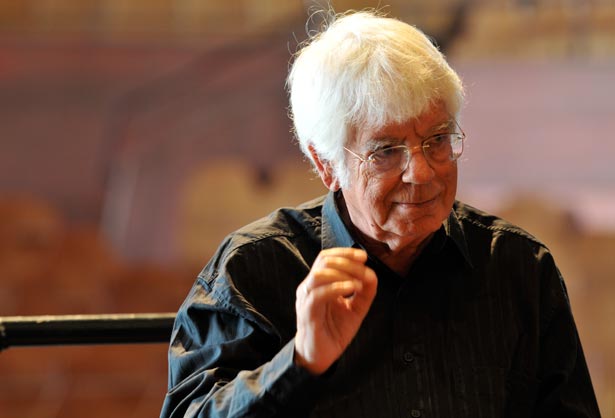
Along with the usual joy afforded by hearing some of history’s greatest music, this summer’s Oregon Bach Festival will be tinged with some sadness. It marks the end of co-founder Helmuth Rilling’s 43-year run as artistic director of the festival he created, with fellow legend Royce Saltzman, in 1970. Although he remained based in Stuttgart, Germany, home of his International Bach Academy, Rilling probably did more to put Oregon on the world’s classical music map than any other single figure. Several of this summer’s events will deservedly be devoted to celebrating the 80-year-old Rilling’s enormous musical contributions to the state, the city and the University of Oregon (OBF’s parent institution).
Rilling’s value even transcends Oregon. While most of us think of the Bach Festival as a performance series, in fact it’s also an educational institution that began as a small workshop in choral conducting and organ playing and has continued as one of the country’s most important incubators of choral conducting talent.
“The most important thing for me personally and for the idea of our festival is the teaching,” Rilling told Oregon Quarterly this year. “Thousands of people have been taught choral conducting in Eugene. The conducting class over the years with so many conductors gave the Oregon Bach Festival great influence on the choral musical life of the United States.”
The smooth, extended transition from Rilling to his successor, British conductor/keyboard player Matthew Halls, has been under way since Rilling announced his retirement in 2010 and the university chose Halls as his successor the following year. Both conducted concerts — some featuring the same works, but in their different styles — at last summer’s festival and in 2011. This year will feature another shared concert that will constitute a kind of symbolic baton-passing.
Rilling will continue to teach and conduct at the festival he founded, and to maintain his vigorous international touring schedule for as long as he’s able. Meanwhile, Halls, who takes over when this festival ends, will continue the festival’s welcome evolution toward a more up-to-date style of historically informed performance, usually on instruments or replicas from the period in which the music was composed. Though Rilling’s own performance practices did evolve along with scholarly rediscoveries, they still often featured anachronistically large choirs, tunings and modern instruments. Those performances, however accomplished, lacked the vitality, clarity and authenticity of those recently made by the world’s other Baroque specialists — including the Portland Baroque Orchestra, which OBF executive director John Evans has brought into the OBF for the past few years.
Still, the Eugene-based festival seems likely to maintain the essential identity Rilling helped give it: a vital hybrid of performances and educational efforts devoted to the music of Bach, the Baroque and beyond. In that sense, it will always be as much about Helmuth Rilling as about Bach, and for that, fans can show their gratitude and appreciation during this summer’s swan song.